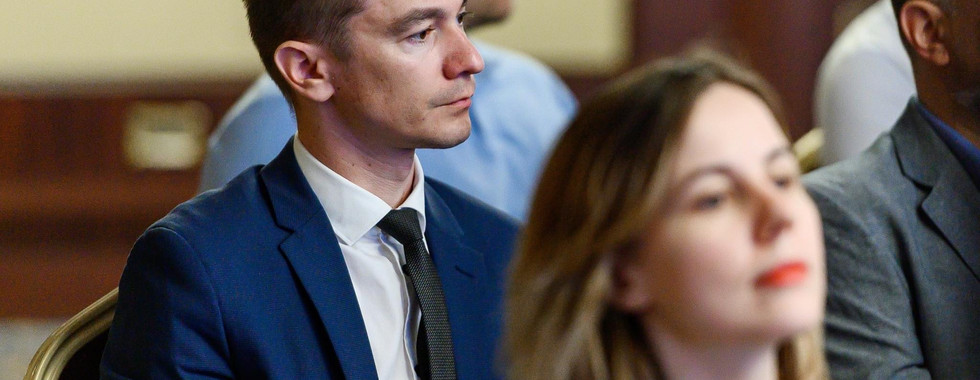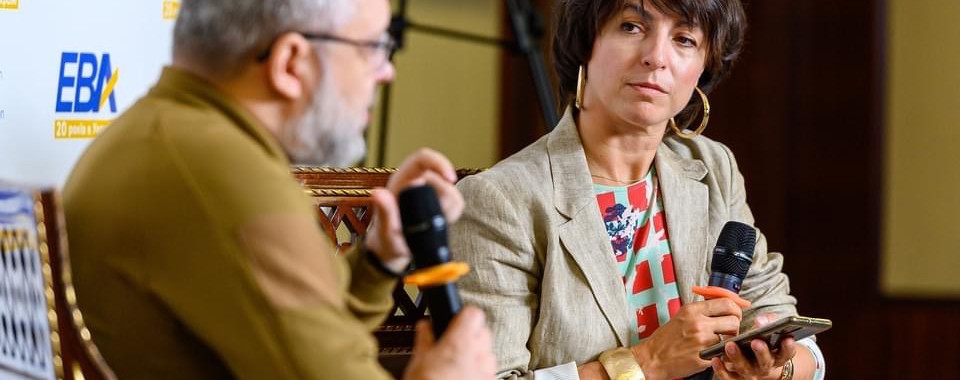During a meeting on July 20, the GB4U and the European Business Association discussed with Herman Halushchenko, the Minister of Energy of Ukraine, the prospects of passing the next winter season, the restoration of energy facilities, green generation, and cooperation between the business and public sectors.
Ukraine managed to get through the previous winter season thanks to the combined efforts and flexibility of all consumers and, according to the Minister, will be able to do the same in the next season. Appropriate preparations and repair work are actively underway, aiming to restore about 1.7 GW of capacity by winter.
Russians will likely resort to repeating mass raids on energy infrastructure. Indications suggest possible modifications to the attacks this year. While the previous season primarily targeted electricity generation and supply, there are signs that the gas infrastructure may also suffer.
The state is deploying passive defense systems and increasing air defense capabilities to protect against potential attacks. During the previous winter, engineers used ample backup equipment while developing unique technical solutions to sustain the energy system under constant attacks. Like last winter, businesses should prepare for various scenarios, as numerous factors will influence the successful passage of the next winter season.
Using autonomous power systems, importing electricity, and decentralizing generation will help deal with electricity shortages. Despite the high cost of imported electricity (the price difference with some countries can be up to four times higher), it offers the possibility of ensuring continuous supply, which can be crucial for certain businesses and industries. The import capacity, which was 600 MW in the previous season, has now been increased to 1250 MW. In the future, there is a technical possibility to import up to 2 GW of capacity.
The Minister reassured that there would be no power outages shortly, despite the complexity of the situation within the system. Energy authorities are requesting consumers to reduce their electricity consumption during peak hours to facilitate the repair process of the energy infrastructure. The current repairs are further complicated by the reliance primarily on internal resources, as thermal generation lacks access to external credit facilities. In May, the government expanded the “Affordable Loans 5-7-9%” program for thermal power stations and plants to obtain credits for post-attack recovery. However, no credits have been issued yet. The Ministry recently approached the National Bank to expedite the implementation of this program, as several energy companies have already submitted their applications.
Businesses also had the opportunity to address the Minister with relevant questions regarding their activities. In particular, regarding restoring the possibility of exporting energy resources, namely biomethane, Mr. Halushchenko stated that such decisions require analysis from a national security perspective. Prohibiting the export of energy resources is a complex non-market decision, and the Ministry understands this, but it cannot threaten the country’s energy security.
The Minister confirmed that the Government would settle all debts regarding payments for renewable energy sources. The question lies only in the timeframe. Additionally, a new sectoral law is currently awaiting the President’s signature, which is expected to shift the paradigm of the green generation market and create new opportunities for its development, including changes to the financial aspect. Mr. Halushchenko emphasized that the future of Ukraine’s energy mix relies specifically on nuclear and “green” energy.
In this context, the safety of nuclear power plants is crucial. Ukraine is strengthening security measures at all facilities under its control, and the President is particularly attentive to this issue. Regarding the Zaporizhzhia Nuclear Power Plant, unfortunately, risks will persist as long as there are russians stationed there, and Ukraine is currently unable to monitor the plant. The access of the International Atomic Energy Agency (IAEA) to the plant is also quite limited. Thus, the Minister highlighted the importance of reinforcing and implementing new significant sanctions against russia to deter their attempts at further aggression.
Additionally, Mr. Halushchenko shared information about the intentions of some foreign partners to allocate a portion of the windfall profits obtained by foreign energy companies due to the war unleashed by russia (which amounted to approximately $200 billion) to the restoration of Ukraine’s energy infrastructure. Specifically, Lithuania’s largest energy company intends to allocate 10% of last year’s windfall profits to Ukraine.
Overall, the Minister believes investors’ interest in Ukraine’s energy sector is high and sees the country’s prospects to become a hub for energy in Europe. Even during the war, Europeans show significant interest in using underground gas storage facilities. However, the primary concern is insurance costs, which can significantly impact revenues, given the ongoing combat actions in the country. Therefore, the issue of accessible insurance for military risks, including in the energy sector, remains extremely relevant.
We thank Minister and his team for their cooperation and dialogue with the EBA!














































ความคิดเห็น